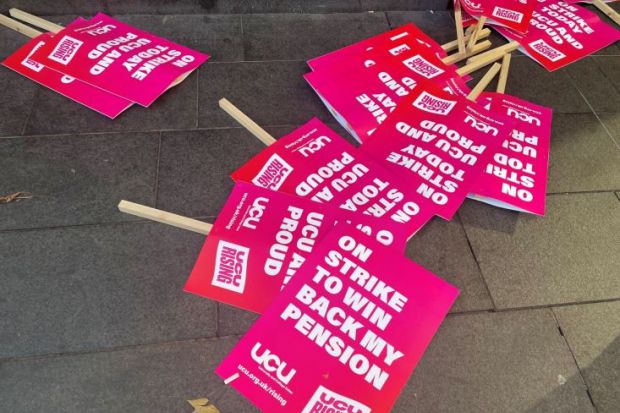The University and College Union (UCU) has ended its five-month-long marking and assessment boycott but has called five further days of strike action to coincide with the start of the new academic year.
In an indicative vote on whether to continue the boycott – which left thousands of students unable to graduate – 60 per cent of members voted in favour of suspending the action.
Academics would have had to resume assessment work at the end of September anyway – when UCU’s current mandate for taking industrial action finishes – but the union informed employers on 6 September it was withdrawing the action early.
Five days of strikes will affect up to 136 universities between September 25 and 29 as the long-running dispute over pay and working conditions continues.
UCU said staff would also be continuing other forms of industrial action and would not reschedule lectures or classes cancelled due to strikes. A further ballot on extending the industrial action is due to be held at a later date.
In an update to members, UCU general secretary Jo Grady said the fight was “not over” and the union would not “give up until we have delivered the deal that addresses years of pay cuts, unbearable workloads, rampant casualisation and unacceptable pay inequalities”.
Universities heavily affected by the boycott still have thousands of papers unmarked and have signalled that academics restarting marking would be expected to clear the backlog as soon as possible, adding to workloads at the busy start of the year.
Dr Grady said academics had been “left with no option but to strike during the start of term because our members refuse to stand by while pay is eroded and staff are shunted onto gig-economy contracts”.
The union rejected the pay rise already implemented by the Universities and Colleges Employers Association (Ucea) of between 5 and 8 per cent and instead called for an increase above the rate of inflation.
Dr Grady said universities were “richer than ever”, but “they won’t give staff their fair share”, adding that a pay award of 5 per cent “is a huge real-terms pay cut and is substantially lower than schoolteachers received”.
Raj Jethwa, Ucea’s chief executive, welcomed the end of the boycott and said there was “now an urgency for UCU members who had participated in the boycott to prioritise marking for those remaining students who have still not received the necessary results to graduate in 2023-24”.
He said it was “disappointing” that at the same time UCU was “attempting to inflict maximum damage before its mandate expires by calling strike action for late September”.
“UCU is intentionally seeking to target the important welcome weeks that many institutions provide during this vital time for new students,” Mr Jethwa said. “It is disappointing that UCU seeks to disrupt welcome weeks instead of providing support for new students.”
The employer body welcomed UCU’s acceptance of fresh talks including a review of sector finances and pay-related matters raised by the unions, Mr Jethwa added.

